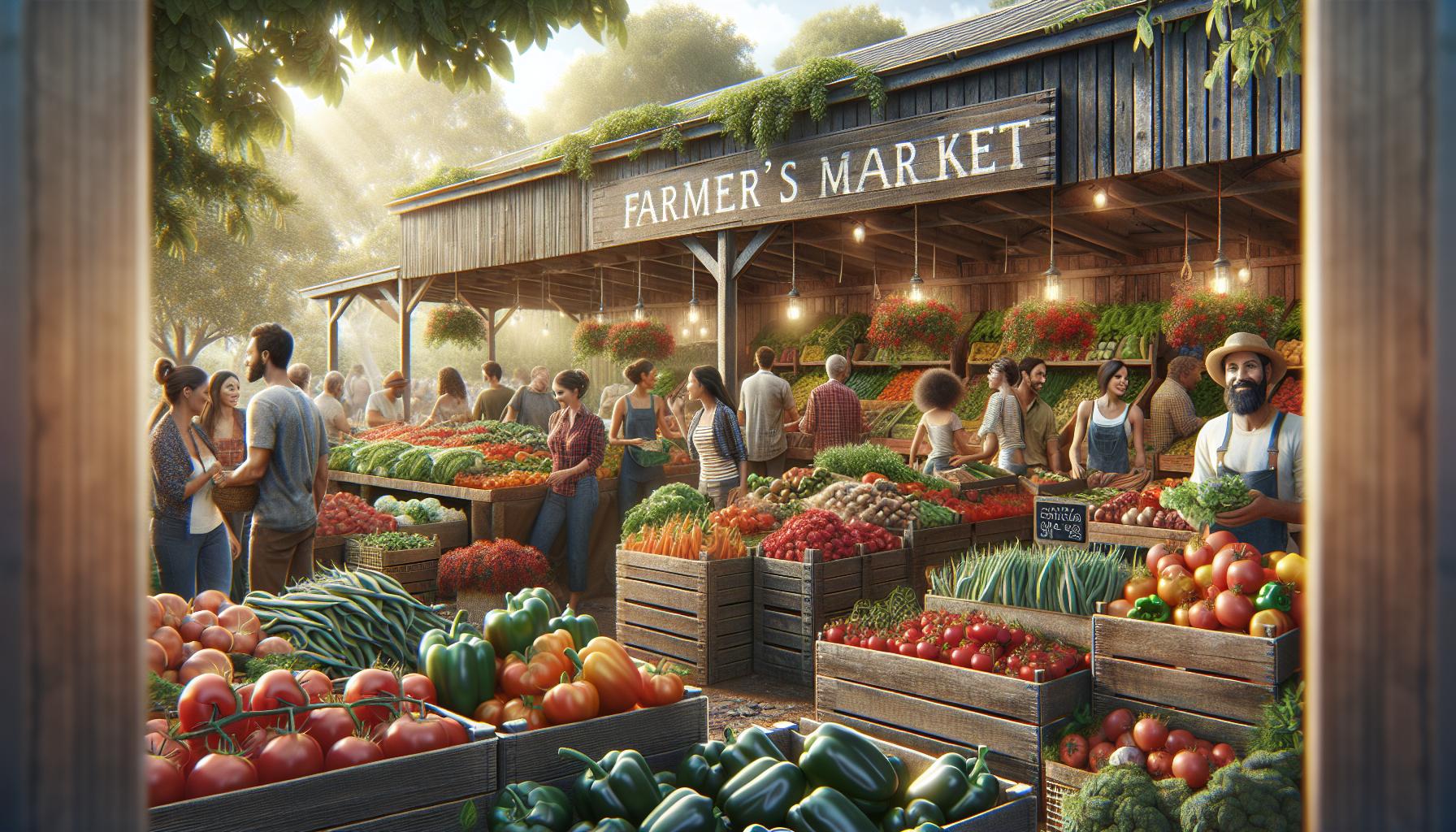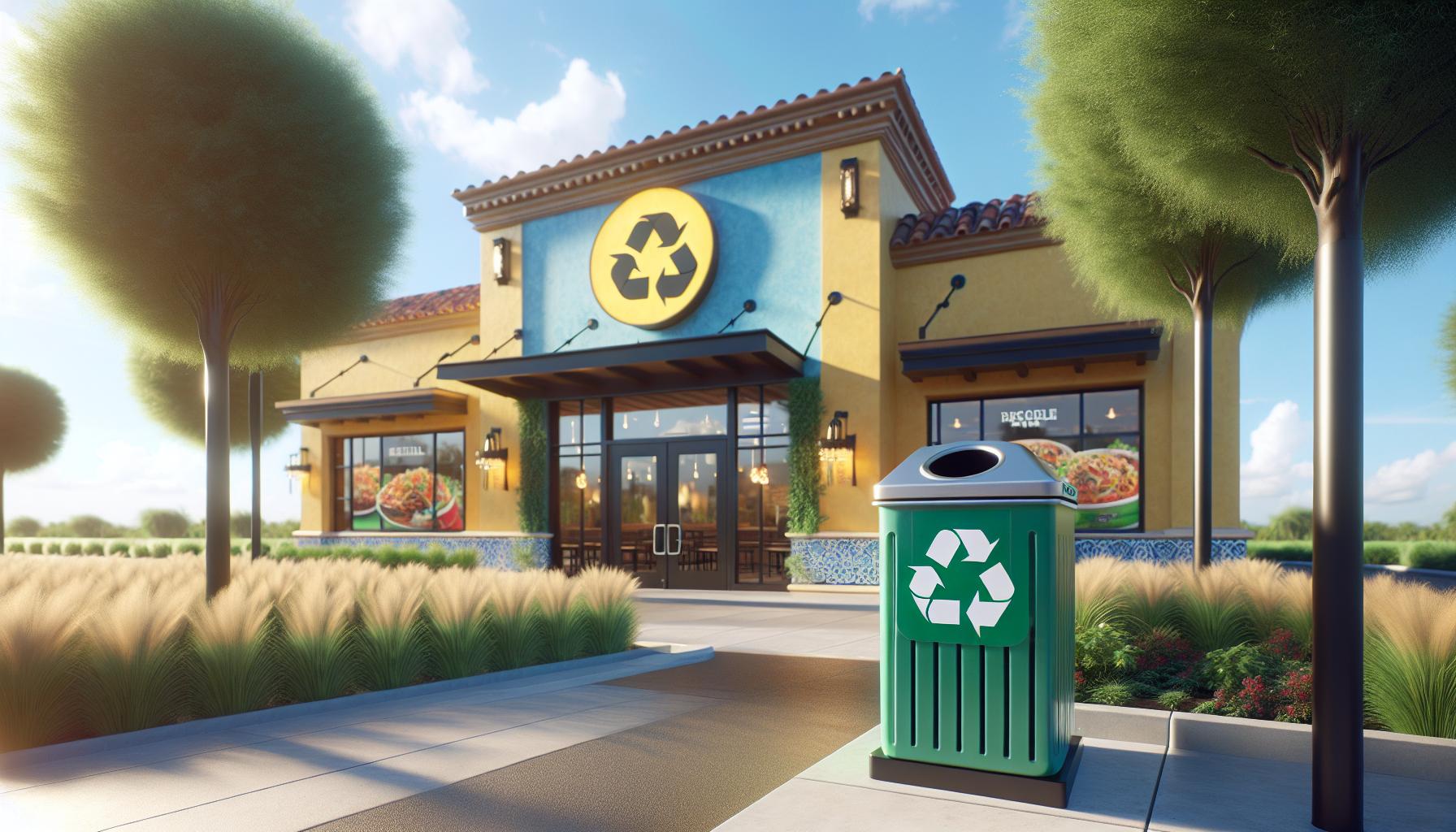In a world where fast food often gets a bad rap, Chipotle stands out like a burrito wrapped in eco-friendly foil. With a commitment to sustainability that’s as bold as their guacamole, they’re proving that delicious meals can come with a side of responsibility. From sourcing local ingredients to reducing waste, Chipotle is on a mission to make the planet a little greener—one burrito at a time.
Chipotle Sustainability
Chipotle prioritizes sustainability in its operations and sourcing practices. The company focuses heavily on responsibly raised ingredients. Sourcing meat from suppliers that adhere to strict animal welfare standards ensures high-quality products. In addition, Chipotle commits to using organic and local produce whenever possible. This strategy not only supports local farmers but also reduces carbon footprints associated with food transportation.
Waste reduction plays an essential role in their sustainability efforts. For instance, they implement composting and recycling programs in many locations to minimize landfill contributions. Collaboration with organizations focused on waste management enhances those initiatives.
Water conservation also represents a vital aspect of Chipotle’s sustainability strategy. They adopt practices aimed at reducing water usage in their restaurants and supply chain. This commitment extends to supporting sustainable farming techniques that preserve water resources.
The impact of these efforts is measurable. According to their sustainability report, Chipotle aims to achieve interim greenhouse gas reduction goals by 2025 and a broader commitment to climate-smart agriculture. Employing innovative farming practices, such as regenerative agriculture, contributes to this mission by improving soil health and enhancing biodiversity.
Transparency remains a core tenet of Chipotle’s approach. The company shares information about its sourcing standards and sustainability initiatives on its website and through public reports. Customers maintain access to details regarding ingredient origins and environmental practices, encouraging informed choices.
Sourcing Practices

Chipotle prioritizes sustainability through its sourcing practices, aiming to support local communities and promote environmentally friendly farming methods.
Local Ingredients
Local ingredients play a crucial role in Chipotle sustainability sourcing strategy. By collaborating with nearby farmers, Chipotle reduces transportation emissions and supports local economies. Regional sourcing also ensures fresher produce for their meals. This commitment to locality enables Chipotle to respond to seasonality effectively, providing customers with ingredients at their peak flavor. In 2022, about 35% of the produce used came from local suppliers, showcasing a dedicated approach to fostering community ties.
Organic Farming
Organic farming is another cornerstone of Chipotle sustainability sourcing philosophy. Chipotle sources ingredients from farms that follow stringent organic practices, emphasizing the absence of synthetic fertilizers and pesticides. This practice promotes biodiversity and healthier soil practices. With over 50% of the beans and more than 30% of the produce sourced organically, Chipotle actively contributes to sustainable agriculture. Supporting organic farms aligns with their goal of reducing environmental impact while providing high-quality ingredients for their menu.
Environmental Initiatives

Chipotle integrates various environmental initiatives to enhance sustainability. These efforts focus on waste reduction and water conservation.
Waste Reduction Strategies
Chipotle implements extensive waste reduction strategies in its restaurants. Composting and recycling programs operate in many locations, significantly diverting waste from landfills. Partnerships with waste management organizations facilitate the proper disposal of corrugated materials and non-recyclable items. In 2021, the company achieved a 50% waste diversion rate across its restaurants. Initiatives like “Food for All” further emphasize their commitment, donating surplus food to local organizations. These combined efforts not only minimize waste but also promote community engagement.
Water Conservation Efforts
Water conservation remains a vital aspect of Chipotle’s environmental strategy. Practices to reduce water usage are integrated throughout restaurants and the supply chain. For instance, Chipotle encourages farmers to adopt sustainable techniques that enhance water efficiency. In 2022, the company reported a decrease in water usage per transaction by 20% since 2015. These initiatives support soil health and contribute to long-term water sustainability. By prioritizing efficient water management, Chipotle sustainability minimizes its environmental footprint while ensuring high-quality ingredient sourcing.
Community Impact

Chipotle demonstrates a strong commitment to community impact through initiatives that support local economies and educate consumers about sustainability.
Support for Local Farmers
Support for local farmers remains a cornerstone of Chipotle’s sustainability strategy. In 2022, approximately 35% of the produce sourced came from local suppliers, significantly reducing transportation emissions. Partnerships with farmers enhance regional economies while ensuring customers receive fresh ingredients. Sourcing practices emphasize ethical treatment, focusing on partnerships with farms that prioritize animal welfare and sustainable farming methods. This commitment not only aids local agricultural practices but also builds resilience within farming communities.
Educational Programs
Educational programs play an essential role in Chipotle’s community outreach efforts. The company collaborates with organizations to provide resources focused on sustainability and healthy eating. Initiatives like the Chipotle Cultivate Foundation promote awareness of food sourcing, environmental stewardship, and nutrition education. Community events often highlight the importance of understanding food origins, empowering individuals to make informed choices. Through these programs, Chipotle fosters a culture of sustainability that reaches beyond its restaurants, contributing to informed and responsible eating habits.
Challenges and Criticisms
Chipotle faces various challenges and criticisms regarding its sustainability initiatives. One significant concern involves the company’s reliance on large-scale agriculture. Critics argue that sourcing practices, while local, may inadvertently support farming methods that harm biodiversity. Environmental groups often highlight the impacts of monoculture farming prevalent in some local supply chains.
Labor practices also draw scrutiny. Reports of inadequate working conditions within supply chains raise questions about the treatment of agricultural workers. Activists emphasize the need for equitable labor policies, ensuring that sustainably sourced ingredients do not come at the cost of worker welfare.
Another area of concern is food waste management. Despite achieving a 50% waste diversion rate in 2021, critics stress that room for improvement exists. Some argue that increased transparency in waste practices would help customers understand and support Chipotle’s sustainability goals.
Water usage, although reduced by 20% per transaction since 2015, still faces criticism. The fast food chain must navigate the balance between conservation and growth demands. As Chipotle expands, maintaining efforts on water-efficient practices remains crucial for long-term sustainability.
Additionally, the company’s commitment to climate-smart agriculture could benefit from further validation. The public often requires more detailed data on the effectiveness of regenerative agriculture practices used within their suppliers. Increased focus on accountability could strengthen the company’s reputation among environmentally conscious consumers.
Chipotle’s critics highlight these concerns to encourage clearer communication about sustainability efforts. Stakeholders advocate for continual improvement in sourcing transparency, labor practices, and environmental impact reductions, aiming to support the notion that fast food can be both delicious and responsibly produced.
Aligning with Eco-Friendly Values
Chipotle’s commitment to sustainability showcases its dedication to responsible practices in the fast food industry. By prioritizing local sourcing and waste reduction, the company proves that delicious meals can align with eco-friendly values.
While challenges remain in areas like large-scale agriculture and labor practices, Chipotle’s initiatives highlight its efforts to improve transparency and community engagement. The ongoing focus on reducing water usage and promoting sustainable farming practices reflects a genuine commitment to environmental stewardship.
As Chipotle continues to evolve its sustainability strategy, it sets an example for others in the industry, demonstrating that fast food can indeed be a force for good.



